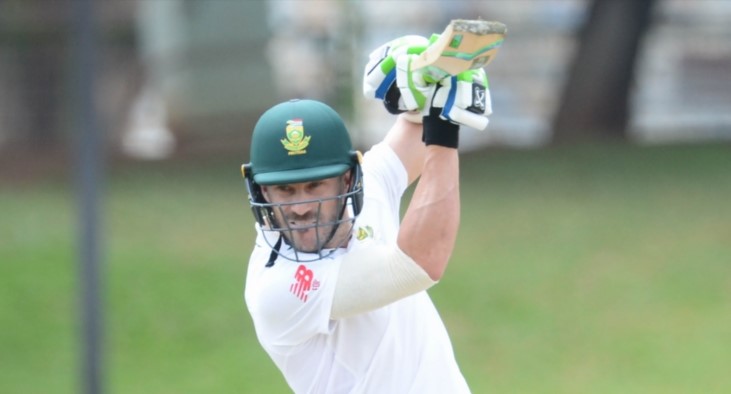Proteas skipper Faf du Plessis has highlighted the influence of the T20 format on the drastic reduction of playing days in Test cricket, writes KHALID MOHIDIN at Newlands.
Test cricket has drastically changed over the past five years. Gone are the days where 500-plus totals are scored on a regular basis and Tests last the full five days. Now we see three- and four-day games becoming a more regular occurrence and declarations – apart from the 622-7 declared between India and Australia – becoming almost redundant.
The Proteas’ win at Newlands came in three days and 10 overs as they claimed a seventh successive home series victory.
ALSO READ: Proteas claim 2-0 series win over Pakistan; Amla injury scare
Du Plessis shared his thoughts on the decrease in the number of days being played in Test matches globally, following his Player of the Match performance in which he scored his ninth Test century and his first at Newlands.
‘Cricket is not the same as it used to be four to five years ago when 400 or 500 totals were scored all the time,’ said Du Plessis after his side had beaten Pakistan by nine wickets at Newlands to secure the Test series 2-0.
‘You look right around the world, possibly for the first time in Australia, it happened because the ball wasn’t swinging, it was going straight. Because the pitch was flat and they were scoring runs.
‘In South Africa, the ball does move. We have seamer friendly pitches. The pace of the game has moved a lot quicker. Batsmen are not just going at 2.2 runs an over. Test matches are going a lot quicker, and as a player you have to move with it.’
The major reason for this shift has been the influence of T20 cricket on the players, who are devoting increasing sections of their annual schedules to the shorter format. The practice of preparing pitches to suit the home teams has also had an influence on this trend.
Fast-trigger movements are becoming habits and mental approaches and techniques are favouring more attacking game plans that are in turn influencing players in the longer format of the game. The Proteas skipper weighed in on the effect he believes that T20 cricket has had on the Test format.
‘I’m not a very clever guy when it comes to stats, but there’s not a lot of Test cricket going five days around the world anymore. The speed of play, particularly by the batsmen, has gone up tremendously.
‘A batsman leaves a couple of balls, and as a bowler you feel the batsmen are going to come after you. Yesterday was a good example, when Pakistan had an opportunity to bat they went at 4.5 runs an over.
‘Test cricket has evolved and it’s great for the fans. They are getting fours, sixes a lot of wickets, it is great to come and watch at the moment. I love how it is at the moment. It’s a change that was necessary.
‘Test cricket is the most exciting format of all. You always feel that every session is so important. If you are just a little bit off the boil, then a Test match is gone because it moves so quickly. So to answer your question, T20 is the big change in Test cricket.’
The third Test will take place at the Wanderers from Friday 11 January.
Photo: Lee Warren/Gallo Images







